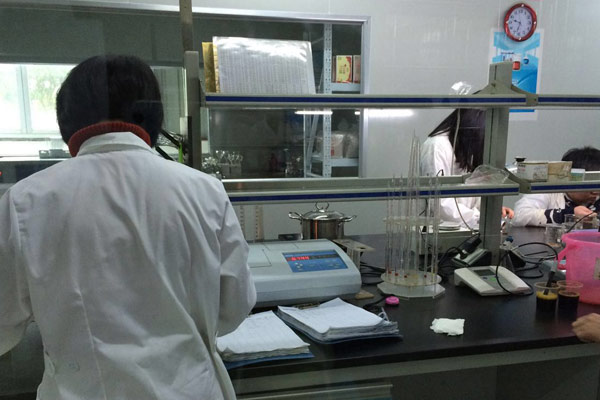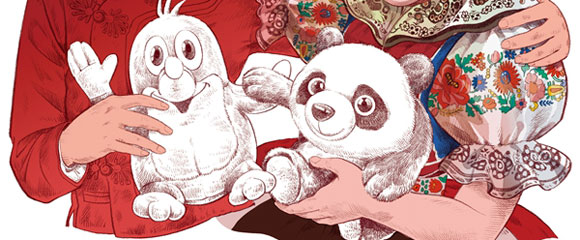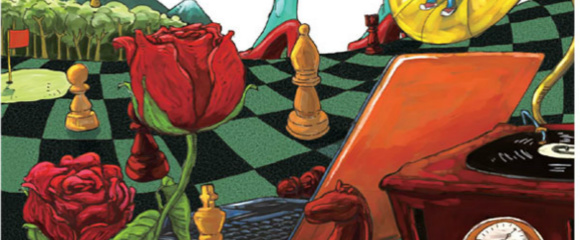Ways help boom tea industry in East China
Updated: 2016-03-31 17:56
By Yao Yao(chinadaily.com.cn)
|
|||||||||
 |
|
Workers perform experiments on how to extract tea contaminants at Fujian Xian Yang Yang Food & Technology Company in Ningde city, East China's Fujian province, March 22, 2016. [Photo by Yao Yao/chinadaily.com.cn] |
In Ningde city, tourists can try plucking tea leaves on tea plantations, enjoy a tea ceremony to further understand traditional Chinese tea culture and even take wedding photos amid the vast and beautiful tea fields, said Li Buquan, head of Ningde Cross-Straits Exchange Association of Tea.
The move undoubtedly complemented the tea industry along with tourism, achieving a win-win prospect for local economic development.
Besides organic tea, Ningde tea producers apply technology and extract tea concentrates, which are raw materials for domestic tea-related beverage companies.
Workers in the companies put rough-processed tea leaves into huge pots and extract the tea concentrates through cleaning, filtering, separating and concentrating procedures.
"Our tea concentrates are provided to household beverage enterprises such as Coca Cola, Master Kong and Wahaha Group," said Zhou Shaoqian, general manager of Fujian Xian Yang Yang Food & Technology Company.
Brand effect also plays its part in the booming local tea industry.
Both Tanyang Congou and Fuding white tea won international accolades, respectively winning gold medals at the Panama Expo in 2013 and the Milano Expo in 2015.
Fuding white tea especially has seen a steady, even growing demand from markets at home and abroad amid the global economic slowdown in recent years, according to Fuding Weekly.
Organic tea, ecological tourism, tea concentrates and a widely-acknowledged brand help tea exports in Ningde city experience salient progress.
In 2015, tea exports in Ningde city totaled more than 2,544 tons, with a value of $84.3 million, and respectively 3.75 times and 12.81 times that in 2010, according to statistics from Ningde Entry-Exit Inspection & Quarantine Bureau.
Related Stories
Contestants participate in tea contest in SW China 2016-03-30 15:35
Health: Growing demand for white tea 2016-03-28 09:13
Health benefits cultivate growing demand for white tea 2016-03-25 07:07
Tea farmers celebrate harvest in Zhejiang 2016-03-24 13:40
She ethnic group: Living, singing and working in tea plantations 2016-03-22 10:45
Today's Top News
Xi-Obama bilateral talk to advance ties
Foreign companies reassured on new Internet rules
Beijing and Prague form new key link
Trump drops pledge to back Republican nominee
China, Czech Republic set up strategic partnership
EgyptAir hijacker arrested, all passengers freed
Panda to join Little Mole in new cartoon series
President optimistic for Sino-German cooperation
Hot Topics
Lunar probe , China growth forecasts, Emission rules get tougher, China seen through 'colored lens', International board,
Editor's Picks

|

|

|

|

|

|






